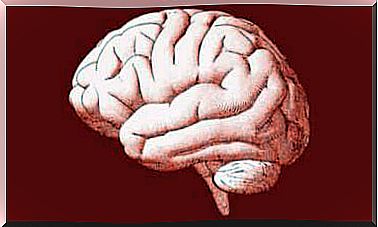The Driving Force In Teaching

We need to include the driving force in teaching. An education system that helps students cope with tasks and overcome their challenges is necessary to have quality in teaching. In order to provide quality teaching, we need to analyze the motivating aspects.
The great diversity between people is the first element we need to think about when it comes to the driving force of teaching. In other words, each student has different motives and motivating processes. For that reason, there is no magic strategy to motivate all students equally.
In this article, we will explain three aspects that need to be considered when it comes to the driving force of teaching. These aspects are interest, self-help and orientation towards a goal.
The driving force in teaching based on interest
How interested a student in school is in a subject is a crucial aspect. On many occasions, we tend to underestimate this variable. We place particular emphasis on the fact that what is very important is the student’s efforts to learn along with their resilience. But that is a serious mistake.
If the content is boring and tiring, the effort that the student makes will be unproductive by and large. If the subject, on the other hand, is interesting, the student will perceive his own efforts as something positive and satisfying.

It is important to consider interest in the driving force of teaching from two sides. We can direct the interest towards the individual and towards an entire group.
Interest in the individual is clear in the individual student. If a subject in school catches the student, it will improve his or her performance. This happens especially because interest promotes exploratory behavior and constructive thinking in relation to a topic that is interesting.
Interest at the group level is different. How do we make the topic more interesting? John Dewey argued that subjects did not become more interesting if you filled them with irrelevant details. For a subject to be interesting, the teacher must help students understand its complexity.
In general, people love to understand things. Therefore, a problem arises if the teaching is not appropriate and as a consequence the student will not understand the subject. When this happens, the information they learn will be meaningless and without interest.
The driving force in teaching based on self-help
We understand self-help as an expectation or personal assessment of one’s own ability to perform a task. In other words, it is about the extent to which a person believes they are competent or not.
With this in mind, it is important not to confuse the concept of self-help with self-confidence. The former is about a particular assessment of a particular task, while the latter is a general notion of one’s own qualities and abilities.
A high level of self-help helps promote a student’s motivation to learn new things. This happens because being good at something makes people feel comfortable. In contrast, low levels of self-help can have a negative effect on one’s motivation.
In particular, our brain can act as a self-defense mechanism to keep our self-esteem high. Therefore, students lose interest in the things that they are not good at or that they do not feel they have the necessary abilities to handle.
Errors in our education system
One of the biggest mistakes in our education system is that we place great emphasis on mistakes and the reward of success, respectively. We must keep in mind that by punishing mistakes and misunderstandings, it is the punishment that comes into focus. Therefore, it can help to give a notch in one’s self-help.
If, on the other hand, we reward success at a competitive level (John got the best grade in class, you can all learn from him) we can make the other students feel bad and it can affect their self-help.
Therefore, it is best to promote the student’s self-help if one wants to strengthen the student. In addition, one should do tests that evaluate success based on the student’s personal progress.
Orientation towards goals
Orientation towards goals is the direction that the student’s motivation takes. In other words, these are the reasons why the student develops his behavior towards learning. We must keep in mind that motivation will change according to these reasons.
We can distinguish between three different goals:
- Achievement Approach : In this category, the students who try to get the best grades will stand out.
- Performance Evasion : Here we can find the students who are not trying to be the worst or avoiding failure.
- Competence-based : It refers to those students who are trying to understand a subject in depth so that it becomes useful to them.

There are other flaws in our educations in these areas. Students with a goal of achievement will tend to get better grades than others. Especially because it is the motivation that drives them towards achieving their goals.
If, on the other hand, you have a competence-based goal, it will not be associated with better grades. However, students with this goal will tend to better understand their subjects.
So how is it possible that those who worry about understanding the subject do not always get the best grades? The answer lies in the fact that in order to achieve better grades in our current education system, it is easier to learn information by heart than to develop a deeper understanding.
Students with a performance approach will learn this principle very quickly. On the other hand, those who have a competency-based approach need to make a greater effort.
Concluding thoughts
As you can see, the driving force in education is fundamental aspects that we must take into account if we want to make good educations. It is not enough to teach a subject. Motivation is not just about inspiring and arousing students’ interest.
Rather, it is about conveying that they are valuable and able to achieve their goals and understand their various disciplines in depth.









